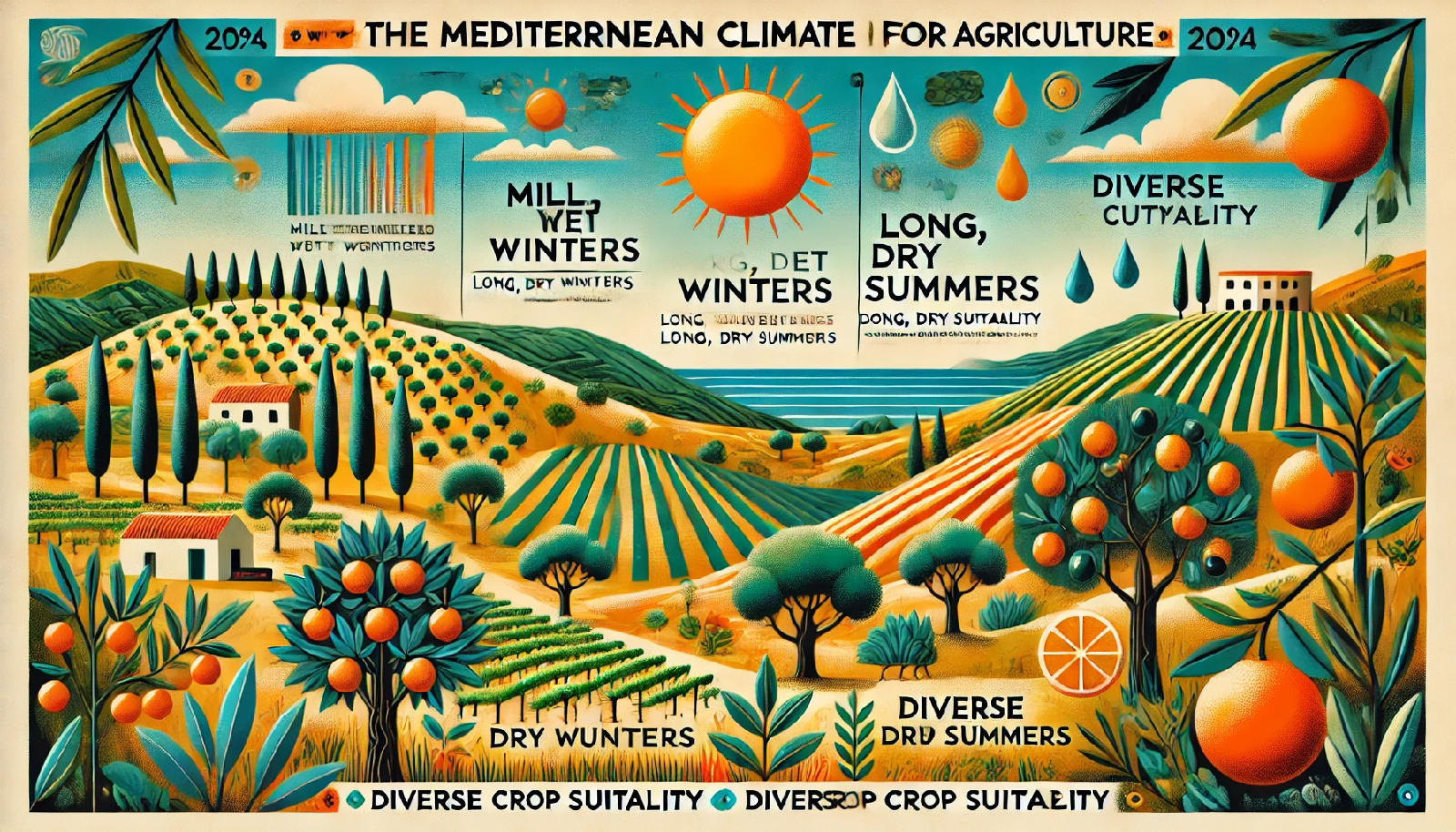The Mediterranean climate, characterized by its warm, dry summers and mild, wet winters, is one of the most agriculturally favorable climates in the world. Found in regions such as southern Europe, northern Africa, parts of Australia, California, and central Chile, this unique climate supports a wide range of agricultural activities. Here’s why it is particularly well-suited for farming and crop production:
1. Predictable Weather Patterns
The Mediterranean climate is marked by stable and predictable seasonal changes. Summers are consistently dry and hot, while winters are mild and wet, providing a dependable cycle for planting and harvesting. This stability minimizes risks associated with extreme weather, such as frost or excessive rainfall, that could damage crops.
2. Adequate Winter Rainfall
The moderate rainfall during the winter months replenishes the soil with essential moisture, supporting the growth of crops and reducing the need for extensive irrigation. This natural replenishment helps sustain crops like wheat, barley, and legumes, which thrive in these conditions.
3. Warm Summers for Ripening
The dry, sunny summers provide the perfect environment for many crops to ripen fully, enhancing their quality and flavor. Grapes, olives, and citrus fruits, for example, benefit from this prolonged dry heat, which concentrates sugars and improves taste and texture.
4. Diverse Crop Compatibility
The Mediterranean climate accommodates a wide range of crops, from cereals and legumes to fruits and vegetables. This diversity allows farmers to grow staple crops like wheat alongside high-value crops such as wine grapes, almonds, and figs.
5. Unique Microclimates
Within the broader Mediterranean climate, there are numerous microclimates created by variations in altitude, proximity to the sea, and local geographic features. These microclimates allow for specialized farming, such as producing high-quality wine in one region and cultivating olives in another.
6. Fewer Pests and Diseases
The dry summer conditions reduce the prevalence of pests and diseases that thrive in wetter environments. This natural pest control minimizes the need for chemical pesticides, making it easier to adopt sustainable and organic farming practices.
7. Ideal for Perennial Crops
Perennial crops like olive trees, grapevines, and citrus plants are particularly well-suited to the Mediterranean climate. These crops have deep root systems that allow them to withstand periods of drought, making them resilient and productive even during dry summers.
8. Historical and Cultural Significance
The Mediterranean climate has a long history of agricultural success. Ancient civilizations like the Greeks, Romans, and Phoenicians developed advanced farming techniques and traded agricultural products, many of which are still grown today. This heritage has shaped modern farming practices and contributed to the global popularity of Mediterranean products.
9. Support for Livestock Farming
The climate also supports livestock farming, with mild winters providing favorable conditions for grazing. Sheep and goats, in particular, thrive in Mediterranean regions, producing high-quality dairy products like feta and Manchego cheese.
10. Economic Benefits
The Mediterranean climate supports the cultivation of high-demand, high-value crops such as wine grapes, olives, and citrus fruits. These crops play a significant role in the economies of regions like southern Europe and California, where agricultural exports are a key source of income.
Conclusion
The Mediterranean climate’s unique combination of seasonal rainfall, warm summers, and adaptability to a diverse range of crops makes it ideal for agriculture. Its advantages have been harnessed for centuries and continue to provide a reliable foundation for sustainable and profitable farming practices. As climate challenges intensify worldwide, the Mediterranean model offers valuable lessons in balancing nature and agriculture.



